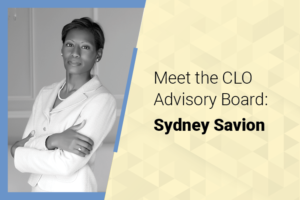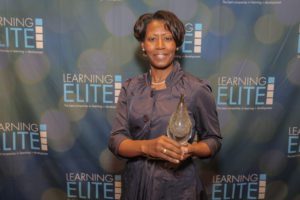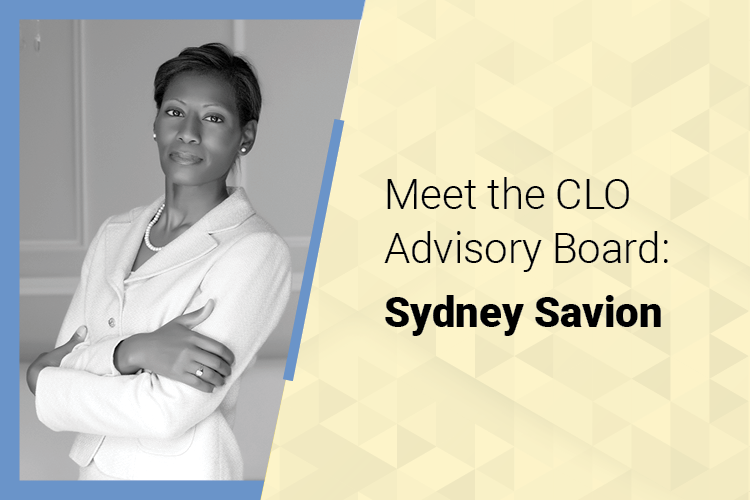 Chief Learning Officer recently sat down for a conversation with Sydney Savion, chief learning officer at Air New Zealand. Savion began her professional career in the U.S. Air Force where she spent 20 years. She has held numerous roles in L&D, previously serving as the chief of education strategy for Dell EMC-Education Services until 2017, and as Dell Global Support and Deployment Service’s global learning officer until 2014. In 2020, she was recognized as CLO of the Year.
Chief Learning Officer recently sat down for a conversation with Sydney Savion, chief learning officer at Air New Zealand. Savion began her professional career in the U.S. Air Force where she spent 20 years. She has held numerous roles in L&D, previously serving as the chief of education strategy for Dell EMC-Education Services until 2017, and as Dell Global Support and Deployment Service’s global learning officer until 2014. In 2020, she was recognized as CLO of the Year.
Chief Learning Officer: Where is your hometown?
Auckland, New Zealand, right now is my hometown, if that’s what you mean. But I am a native of Virginia, and I’m a Texas import. So I consider Texas my home.
CLO: How did you first become interested in learning and development?
I grew up on a farm in Virginia, and that is where my curiosity was really cultivated. If you’ve ever lived on the farm or been on the farm, you have to be imaginative because there’s not much going on on a farm except hard work. I started reading a lot, and one of the first series of books I started reading was, the Hardy Boys, and the Nancy Drew mystery series. That really was the beginning of my curiosity and my interest in learning, and wanting to develop myself as a kid. It continued with my interest in science, my interest in math. I stepped into the flow of what I was curious about, and that has carried me till this day, really.
CLO: What lessons did you learn back in 2020 that you’ve taken with you into 2021?
There’s three things. Being more intentional about empathy and being empathetic — meaning, intention and attention to that capacity, to understand and feel what others are experiencing. I think that is what I learned, and what I have brought forth into 2021, protecting my energy. It’s easy when you’re in lockdown to sit still at your computer, and pour into your work and not give yourself a break. You don’t really think about the energy that you’re exerting even just being in lockdown. The third thing is sitting still — catching up with yourself, catching up with your thoughts and catching up with that space and reflection.
CLO: What role does leadership play in transforming organizational culture and behavioral change to strengthen feelings of belonging and inclusion in the workplace?
I have some good ones, but I’m going to chalk it up to five. One, it’s important for leaders to clarify and help individuals clarify their purpose. I’m a big believer in purpose and providence. Specifically, purpose in a workplace, discovering what an individual’s catalyst is, what their calling is, so that they can step into the flow of their own peak performance and what they’re here to do on this earth. Second is being able to help people authenticate meaningful work, because when people find meaning in what they do, they typically will perform better. Third is forging mutual experiences. I think one of the challenges with diversity, equity and inclusion is that it’s easy to have a diverse community, but that doesn’t necessarily translate into belonging. Forging those mutual experiences, cultivating and creating environments where people can connect and contribute and join together in community — I think — is really important. The fourth thing is encouraging calculated risks, promoting that curiosity, allowing and creating an environment, where people can constructively speak their mind about things, and how they’re feeling and what contributions they can make. And then the last thing is, practicing coaching, again, is going back to creating that neutral environment of mindful communication, so that people feel at ease. We often talk about bringing your whole self to work, which is what, in effect, should create that belonging. As leaders, we have to practice that, and you have to create an environment where people can feel that way, because belonging is a feeling.

CLO: How do you enjoy spending your time outside of work?
Given I live in Auckland, New Zealand, it is absolutely taking advantage of this majestic nation. I like hiking, golfing and literally just dropping into nature here, whether it’s sitting at a park and reading or just being — going back to what I was saying earlier about sitting still.
CLO: What book, either audio or physical, or podcast has gotten you through the pandemic?
Lots of books, but there’s going to be three podcasts that I’m going to name. Hidden Brain, which basically connects science with practical insight. Super Soul Sunday with Oprah Winfrey because she definitely helps you connect with this big life in a very meaningful way. The last one is Joel Osteen, and you don’t have to be religious to listen to Joel Osteen, but he certainly brings a very calming, insightful, practical way to really live your best life.
CLO: In your opinion, what are some components of a robust L&D program?
Number one is co-ownership with the business. I really, strongly believe you have to have a strategic partnership with the business, assessment of capability gaps. Continual assessment of capability gaps is a huge component, designing a learning journey. All too often, L&D just creates a training program to meet the immediate need, but it’s not a journey, it’s an instance of training, so an actual learning journey. Next, I’d say, is execution and scaling. A robust L&D program has the capability of looking around the corner to see what’s coming, but also connecting the dots with what’s already been — it’s insight, hindsight and foresight so you can see what’s necessary to execute and scale for the business. Last is measurement. Understanding not just learning and development metrics, but what are the business metrics, and how does L&D actually move the needle on business key performance indicators?
CLO: What advice do you have for CLOs and learning leaders as they continue to take on 2021?
There’s a quote from Oprah Winfrey that goes, “The key to realizing a dream is to focus not on success, but on significance, and then even the small steps and little victories along your path will take on greater meaning.” We’re already four months into 2021, and now, hopefully focusing more on significance and meaning, on what 2020 has taught us, as it relates to significance and meaning. I think that all ties back to what I was saying earlier about the lessons from 2020, which are empathy, protecting your energy, sitting still, catching up with yourself. It’s about making meaning. 2020, I think, helped people focus on what is meaningful to them. We lost our freedom because of a pandemic, so what really is meaningful? What’s significant? Not just only at home, but at work as well. Think more about significance and meaning, and the success will come.
This article was edited for brevity.















